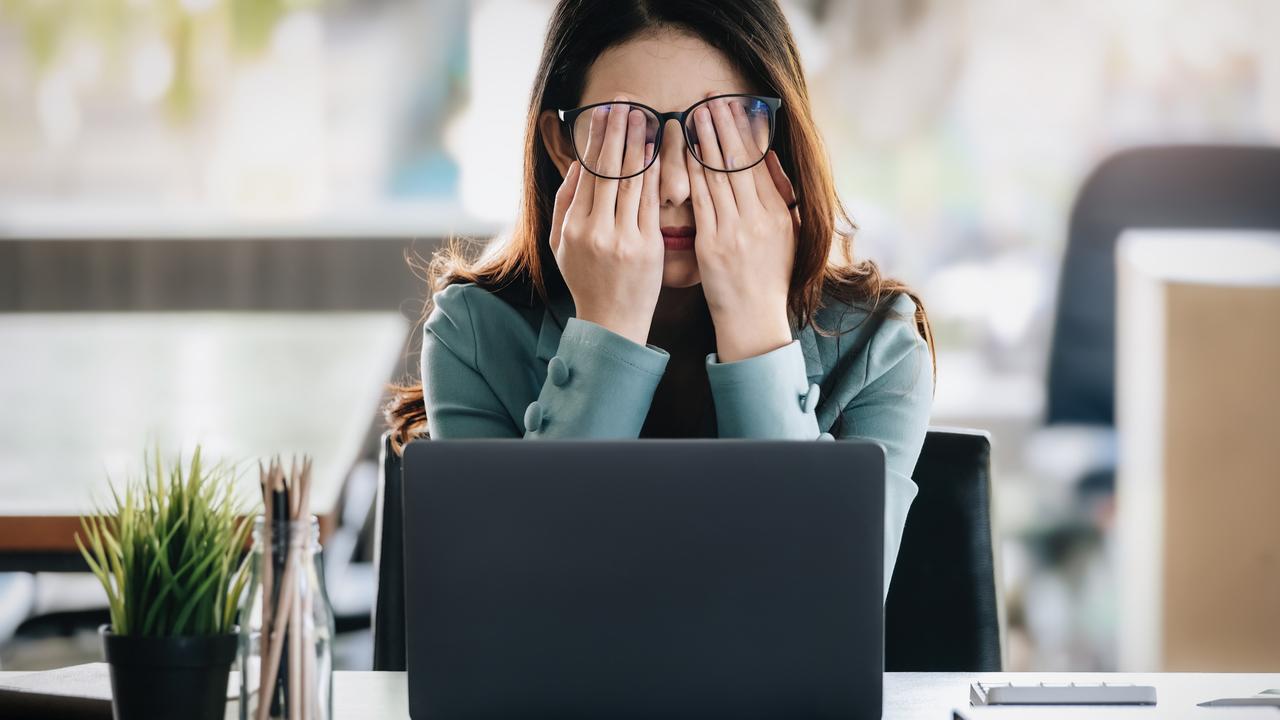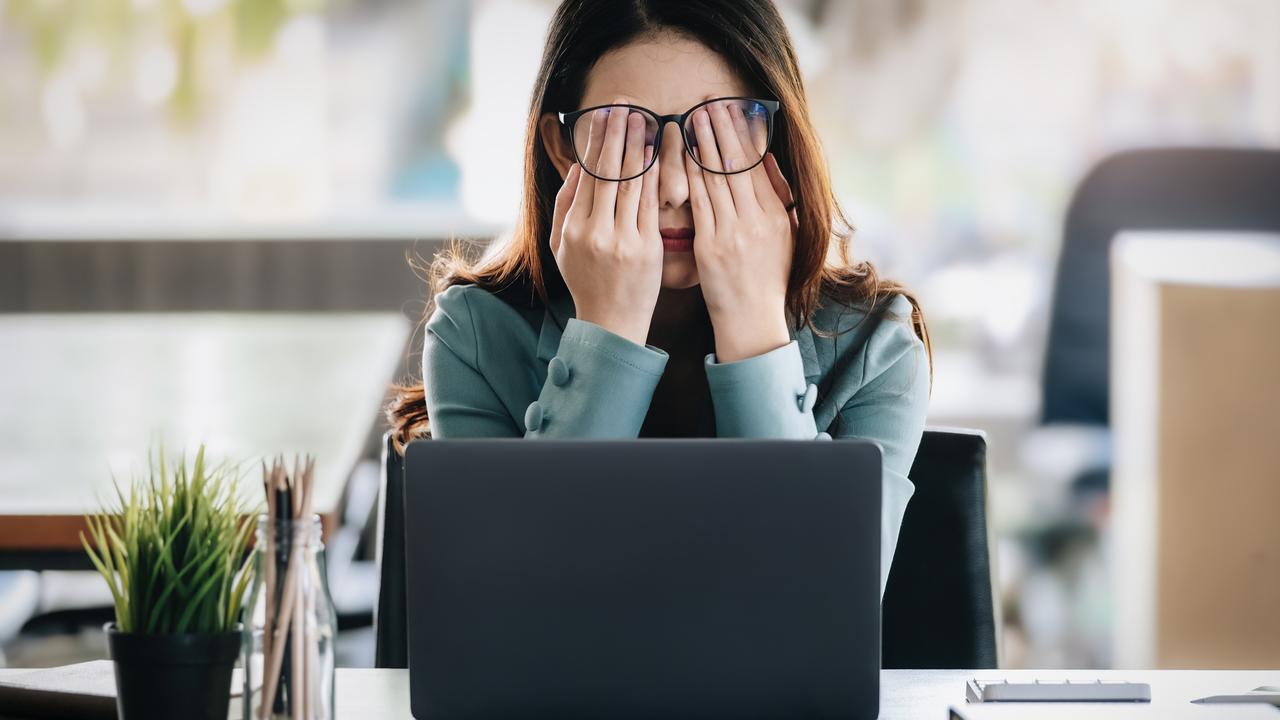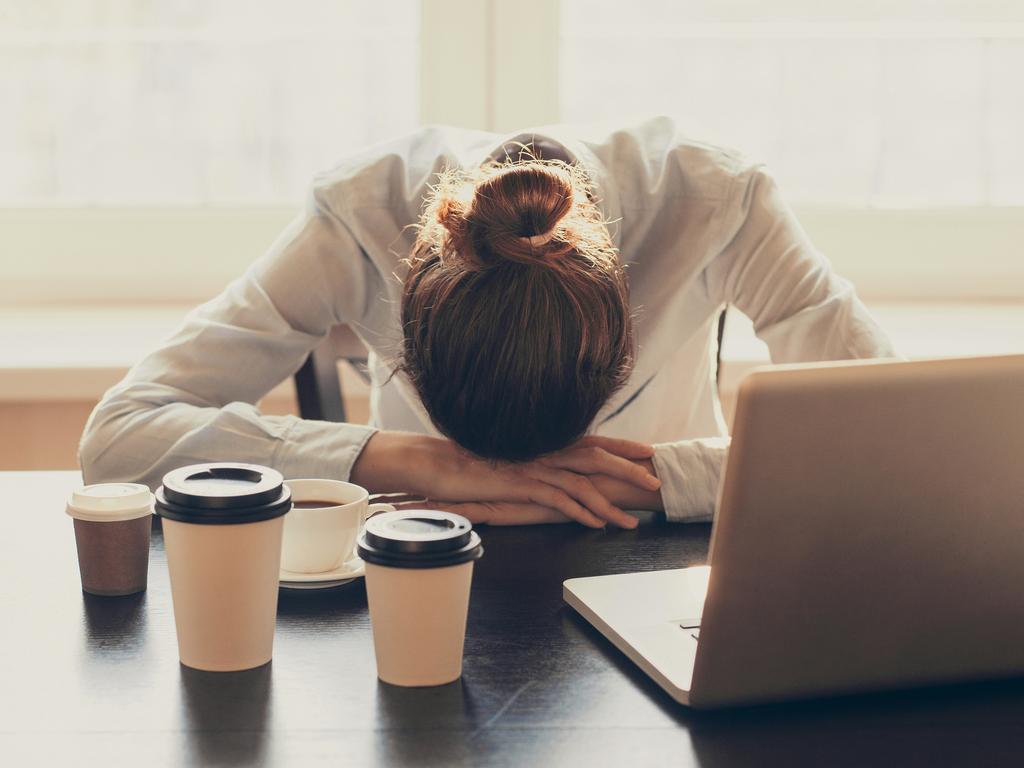When common workplace affliction might indicate something serious
While a 3pm slump is a common condition across Aussie workplaces, underlying health issues might be at play.

Health
Don't miss out on the headlines from Health. Followed categories will be added to My News.
Welcome to Ask Doctor Zac, a weekly column from news.com.au. This week, Dr Zac Turner explains the 3pm slump, what it can mean and how we avoid it.
Question: Hi Dr Zac, How do I combat the 3pm slump at work? I find myself exhausted in the afternoon at my desk, and I need to fix it. What can I do? The most annoying part is that the moment I come home, I feel alert and ready to go – like where did all this energy come from? – Cooper, 34, Sydney

Answer: Feeling sleepy midafternoon, typically between 1pm and 4pm, can become a big problem.
Usually office workers will pump themselves full of sugar or coffee at this time in order to finish the work day.
There are several reasons why you feel tired in the afternoon and then become more alert in the evening when you want to fall asleep.
Circadian rhythm
Your body has a natural internal clock known as the circadian rhythm, which regulates various physiological processes, including sleep-wake cycles.
In the afternoon, it is common to experience a natural dip in alertness and energy levels, often referred to as the “afternoon slump”.
This dip is a normal part of the circadian rhythm and can make you feel tired.
In the evening, your body may start to produce more melatonin, the hormone that helps regulate sleep, which could make you feel more alert.

Inadequate sleep
Feeling tired in the afternoon could be a sign that you are not getting enough sleep at night, accumulating a sleep debt.
When you are sleep-deprived, you are likely to experience dips in energy and alertness throughout the day.
In the evening, when you finally get some downtime, your body may start to rebound and feel more awake.
It’s important to prioritise getting enough quality sleep to avoid such fluctuations.
The time that we go to bed and wake up is generally determined by our work, study and social commitments.
So, for the majority of people who work or study on a 9-5 basis, a ‘normal’ sleep schedule would probably involve going to bed between 10pm and midnight, and getting up between 6am and 8am.
Permanent jet lag
However, sufferers of circadian rhythm sleep disorders have circadian clocks that are not synchronised with such a ‘normal’ sleep schedule; instead, their body clock is telling them to go to sleep and wake up at very different times.
The relationship between their circadian clock and local time (local light/dark cycles) is abnormal.
Having a circadian rhythm sleep disorder is similar to having permanent jet lag – a misalignment between the body clock, the local clock time and the light/dark cycle.
This leads to problems in falling asleep when we want to, staying asleep and feeling sleepy during waking hours.

What can be done?
Poor diet, stress or mental fatigue can also be reasons you are experiencing this slump.
If you experience an excessive mid-day slump, think twice before reaching for empty afternoon calories or taking a power nap, which can interrupt your normal sleep patterns. Instead, try any of the following:
● Get up and move around. Doing so outside is ideal, as it can get your blood and oxygen pumping, reduce tension and boost your vitamin D with natural light.
● Drink enough water. Dehydration can cause fatigue.
● Choose a protein-based, energy-boosting snack. Lean chicken or a handful of almonds are both good options.
If you are experiencing significant fatigue or an intense need to sleep on a consistent basis in the midafternoon, there may be other underlying reasons that you should discuss with a physician.
Got a question? Email askdrzac@conciergedoctors.com.au
Dr Zac Turner has a Bachelor of Medicine and Bachelor of Surgery from the University of Sydney. He is both a medical practitioner and a co-owner of telehealth service, Concierge Doctors. He was also a registered nurse and is also a qualified and experienced biomedical scientist along with being a PhD Candidate in Biomedical Engineering.
Originally published as When common workplace affliction might indicate something serious









